They say a meme is worth a thousand words.
Okay, not really but close enough.
The ability to explain complex topics or current events is one of the reasons these things go viral and each week it seems we have a new meme format to work with.
Then there are the classics. The guy with the girlfriend looking over his shoulder at another woman. The ‘this is fine’ dog. Ben Affleck doing pretty much anything. The Drake yes/no.
One of my all-time favorites is the Winnie the Pooh meme. You know, the one where he looks normal and disinterested in the first picture and like a snob in the second picture.
I don’t know the story behind it but it just works.
For example:

Or this one:

And here’s this meme on steroids:

Movies are for regular people. Films are for movie critics. And cinema is for people who don’t even like movies, just “the arts.”
This meme is perfect for finance because it’s an industry that relies on jargon as a way to sell, confuse and signal higher than average intelligence. Words are meant to impress in the world of finance and convey expertise.
Here’s a simple one:
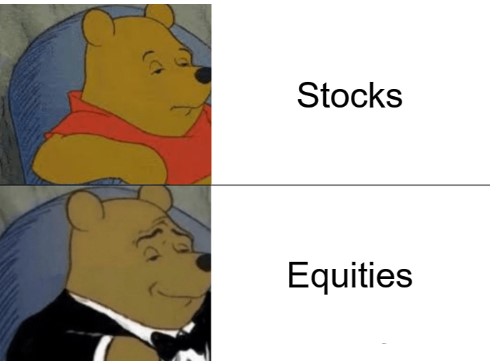
This works for thematic investments as well:
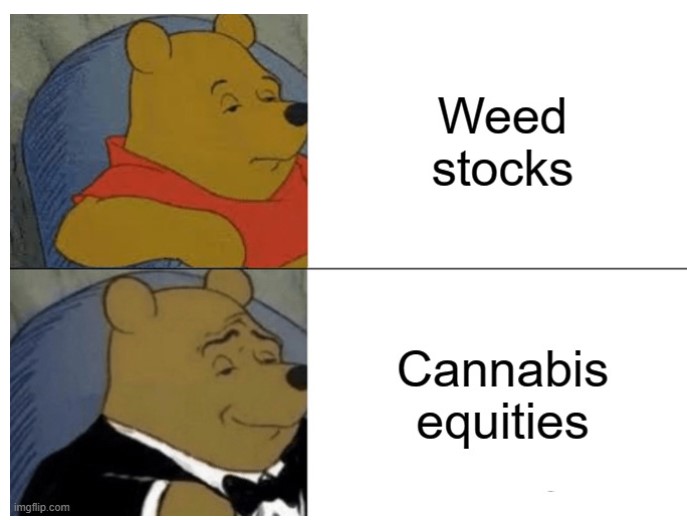
And bonds:

This one is a favorite of portfolio managers:

I never know which one of these to use with the plural of index but indices feels fancier:
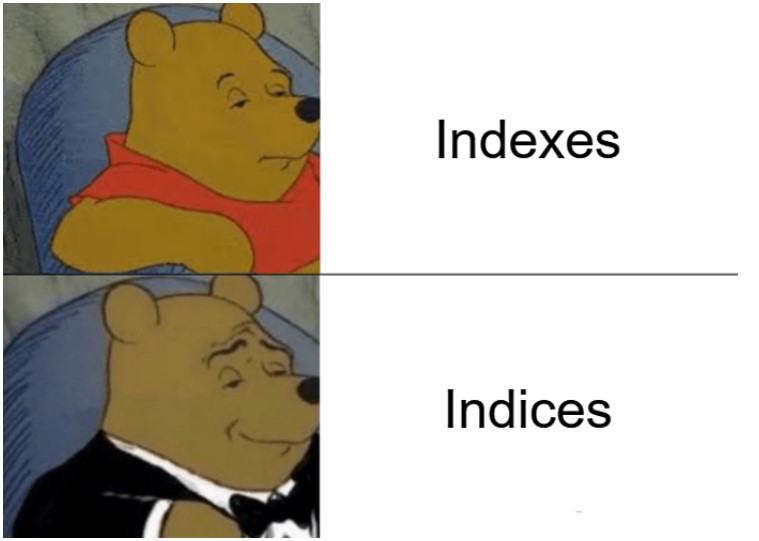
This one usually comes from quant fund managers:

Technical analysts won’t like this one:
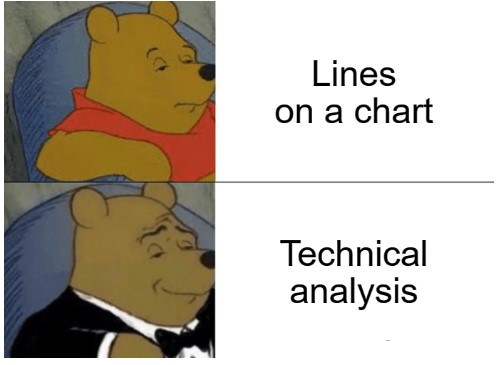
I’m kidding.
For good measure here’s one for fundamental analysts as well:
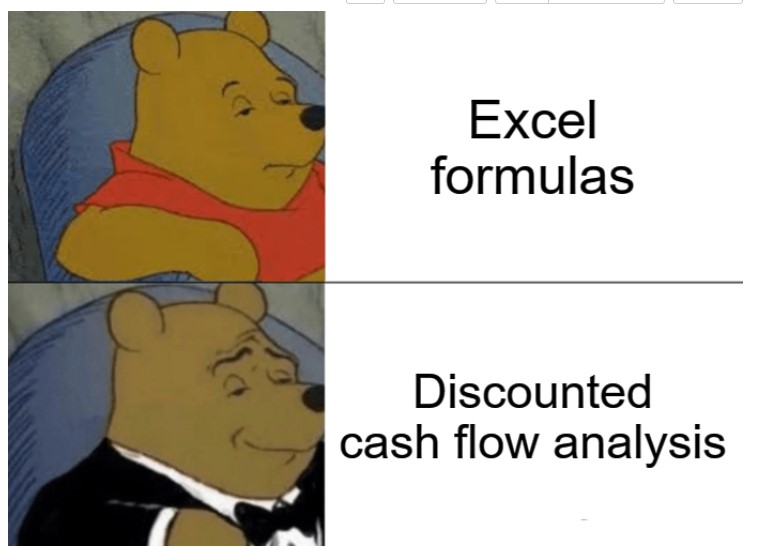
Or how about the explanations you see every day in the financial media about why the market moved up or down?
When stocks fall:
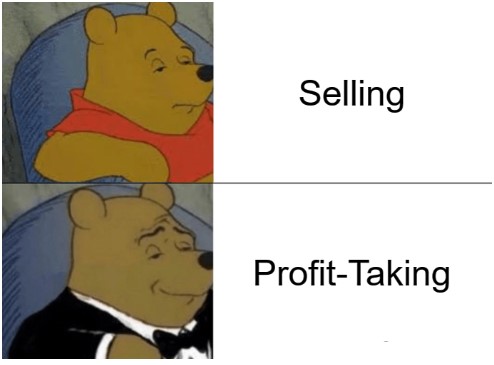
Or when stocks rise:
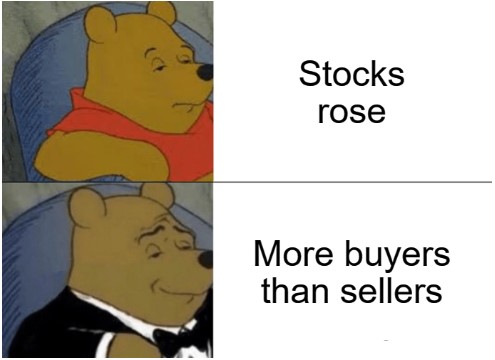
Then you have strategists trying to explain what will happen next:
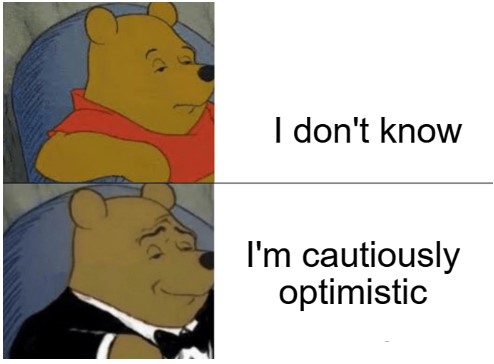
Here’s another one:
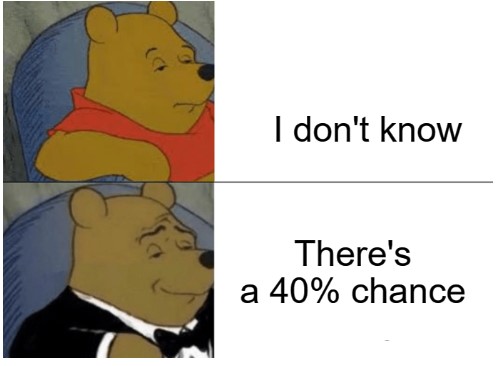
I don’t know why but for some reason everything has a 40% chance of occurring when Wall Street people make predictions. I guess it’s the perfect probability to cover your ass.
If it comes true, 40% seems like a relatively high number. And if it doesn’t, well it was only a 40% chance, right?
And I don’t want to leave out the inflation truthers:
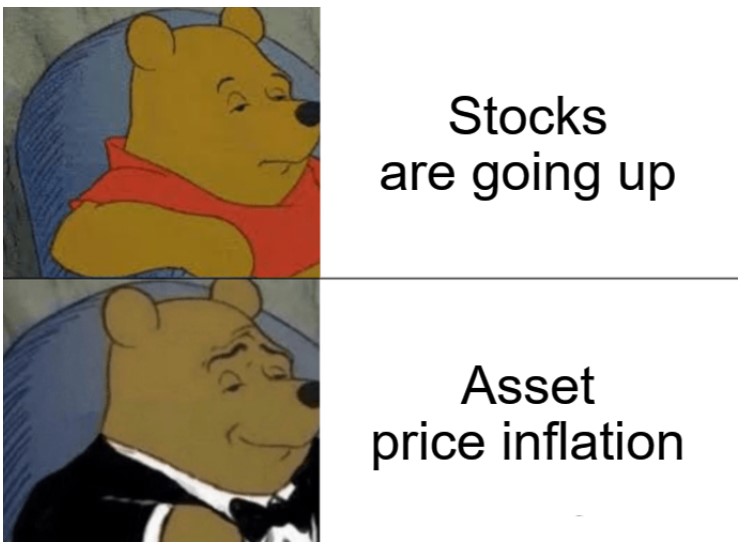
Or the Fed haters:

This one is niche but every tiny asset management firm calls itself a boutique because it sounds prestigious:
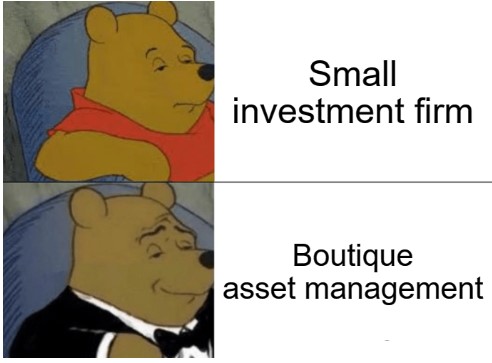
Everyone in the asset management industry knows if you underperform the market the first line of defense is to use risk-adjusted return measures:
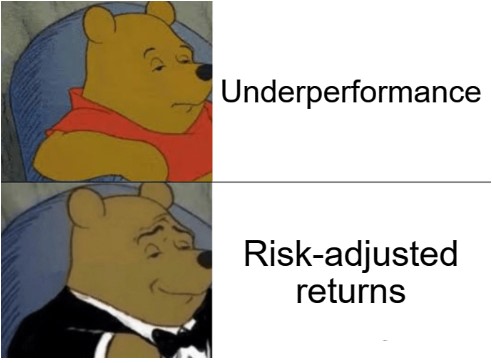
Yes, risk-adjusted returns are important but some of the measures Wall Street uses are a bit of a stretch.
One more:

Michael and I used Winnie the Pooh to describe a few different aspects of the financial markets right now and more in this week’s Animal Spirits video:
Subscribe to The Compound to see these videos every week.
Further Reading:
TL;DR The Best Investment Books in One Sentence
Now here’s what I’ve been reading lately:
- Free trading is like giving chainsaws to a toddler (Evidence-Based Investor)
- No moat is safe (Krueger & Catalano)
- Why Goldman unsurprisingly avoided Archegos losses (SL Advisors)
- Purposeless capital (The Big Picture)
- What scares me about getting old (Barron’s)
- An oral history of Scotty Doesn’t Know (AV Club)
